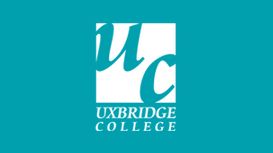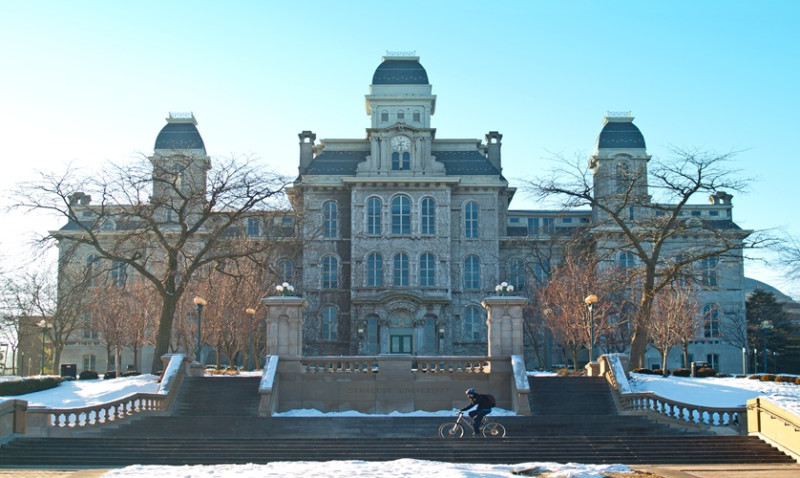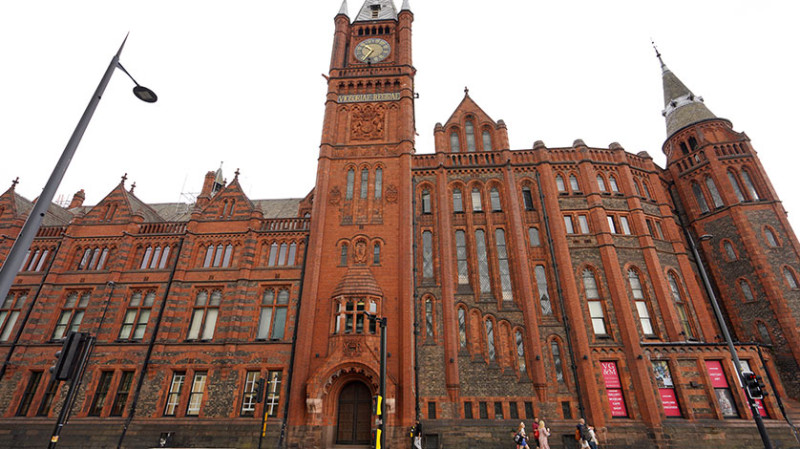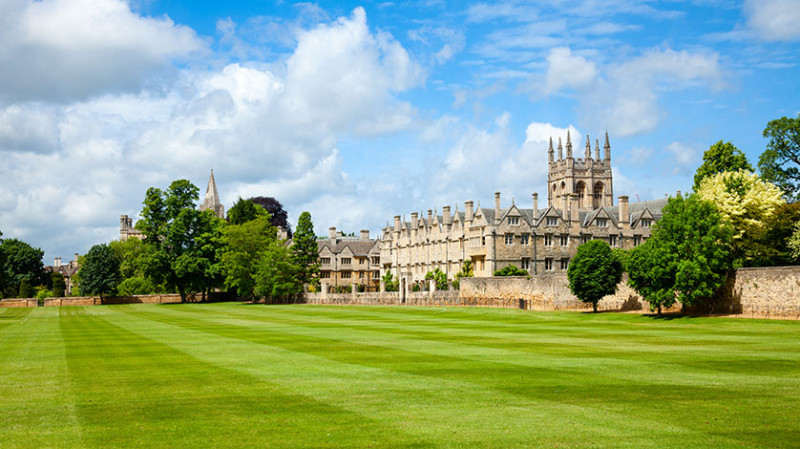Partner's ads
Colleges in the UK

The Rep College
Reading, Berkshire, South East England, RG8 8BJ
The College is based at The Rising Sun Arts Centre in Reading, Berkshire and presents 14 shows, in a variety of venues, during a one year course. As particular skills are needed they are taught as

Cannington Equestrian Centre
Bridgwater, Somerset, South West England, TA5 2LS
Bridgwater College's Equestrian Centre is an approved British Horse Society (BHS) riding school based in Somerset. Our facilities include a recently re-surfaced indoor and outdoor arena, a range of

Anglo Skills College
Nottingham, Nottinghamshire, East Midlands, NG1 6DQ
We are an institute committed to providing wide range of academic and professional courses to fulfill the needs of the 21st Century. We aim to establish strong academic foundations, achieve

Harlaxton College University Of Evansville
Grantham, Lincolnshire, East Midlands, NG32 1AG
A whimsical, sometimes quirky, often humorous journey through life and learning in a magical place--Harlaxton College. In 53 short sketches, the author (former principal at Harlaxton and sometime

Northern College
Barnsley, South Yorkshire, Yorkshire and the Humber, S75 3ET
The Northern College is a residential college dedicated to the education and training of men and women who are without formal qualifications and are seeking to return to learning. It also offers

Harrogate College
Harrogate, North Yorkshire, Yorkshire and the Humber, HG2 8QT
Harrogate College offers you a wide range of exciting courses to enable you to reach your career potential. The College has a reputation of offering a range of vocational opportunities meaning that

Malvern College
Malvern, Worcestershire, West Midlands, WR14 3DF
Malvern College is a co-educational boarding and day school for pupils aged 13-18. Founded in 1865, Malvern is set in a beautiful 250-acre campus, which offers first-class facilities to its pupils.

The Sixth Form College Colchester
Colchester, Essex, East England, CO1 1SN
The Sixth Form College, Colchester is one of the most successful colleges in the country and maintains an outstanding local and national reputation. The College's aim is to provide broad, high quality

Uxbridge College Day Nursery
Hayes, West London, London, UB3 3BB
We are always keen to find out what happens to our students when they finish their studies. If you left Uxbridge College anytime in the last 50 years we would love to hear from you! Why not keep in

Hampton College
Peterborough, Cambridgeshire, East England, PE7 8BF
Welcome to the Hampton College website; I hope it will show you why we are so proud of our school. Hampton College opened in 2005 and has grown steadily each year since then. The school has enjoyed

Drumcree College
Portadown, County Armagh, Northern Ireland, BT62 1QQ
I am delighted to introduce you to Drumcree College. We are very proud of our school, because we believe it is a school at the heart of our community. We seek to ensure the transition from primary

Finley Stokes Centre
Blackburn, Lancashire, North West England, BB1 8EP
We are committed to enabling you to develop academically, spiritually and personally in your education. We are a long established academic community. Though our buildings and facilities are incredibly

London School Of Osteopathy
Bethnal Green, East London, London, E2 9LJ
The LSO has a well deserved reputation as the leading provider of part-time osteopathic education in the UK, with flexible modes of study allowing the six year part-time course to be completed in 5

The Sixth Form College
Farnborough, Hampshire, South East England, GU14 8JX
It is one of the top performing sixth form colleges in the country, rated as 'Outstanding' by Ofsted and is committed to building upon its reputation as a centre of excellence. At Farnborough, we have

The John Wernham College
Maidstone, Kent, South East England, ME16 8RT
The Maidstone Osteopathic Clinic was established in 1949. These made provision for the treatment of those in need of osteopathy and to further the education and training of students and graduates in
Can't find your business?
Adding a business to Colleges-UK.co.uk is free.Frequently Asked Questions and Answers
- Click here to navigate to the Login page.
- If you haven't yet registered, click here to navigate to the Registration page.
- Fill all required fields.
- After you have logged in, click on "Add Business.
- After you have clicked on "Add Business", you will be redirected to another page.
- You can now fill in the details for this Business.
- Click on the "Create" button.
- Your listing will now be "pending approval".
- One of our Administrators will review your listing and decide whether to Approve or Reject it.
- Priority listing positioning for city, county, in the search results, and our home page.
- A website link on the listing page.
- Can add services with links included.
- Have access to all submitted free quotes from our visitors.
- Increase leads that you can follow up and generate sales from.
- Increase your online presence which, these days, is an indispensable commodity.
- Allow the thousands of potential customers who use the directory each month to find you.
Many students from abroad, when visiting a foreign country for an exchange year or to simply enroll at a Bachelor or Masters degree course, or another type of an educational course, often find it difficult to figure out the educational system of the country hosting them as students. And this is totally normal and understandable. At the end of the day, the majority of the countries in the world follow their own educational system that may be similar to other countries in the world, but not necessarily exactly the same.
This is a common case when it comes to the term “college” in the UK. When students from the USA and many other countries in the world are asked to define what college is, they will quickly explain to you that college is the same thing as university. However, is it the same in the UK? Did you know that college in the UK is something different from university? Today we are about to explain the basic differences between a college and an university in the UK, so stay tuned if you are interested in this topic.
The Difference Between University and College in UK
Confusion about a foreign educational system is a common thing students from abroad face and they may feel intimidated by that. However, there is no place for worries, because things are often easy to explain and get used to. This applied for the difference between a college and a university in the UK. In many countries both terms are pretty much interchangeable and mean the same thing. Other countries simply never use the term college and they have universities only. However, when it comes to the UK, there are both a college and a university as a part of the educational system and they mean something different. Well, if you are an exchange student in the UK or going there to study for a degree, you will soon find out that the country has a pretty unique educational system and the college is not the only thing different here.
Before explaining more in-depth the difference between a university and a college in the UK, let’s get some basic understanding about the educational system in the country in general, about a university, and about a college. It is a very good and important beginning if you are interested in studying in the UK and getting a degree, because there are different options and opportunities and you can choose the one that best suits and meets your requirements and needs as a student. Both a university and a college can help you develop in different ways and achieve different goals. Therefore, it is important to understand the difference between a college and a university and make the right decision, depending on your plans for the future.
In general, the UK educational system is divided in five major stages as it follows: Early years, Primary years, Secondary School, Further education, Higher education. The first three stages of education in the UK are the base of what the world knows as compulsory education. What happens at the end of secondary school is that students will sit for GCSE or A-Levels exams and next they will be free to make the decisions and choices about their future. This is the first stage, where the difference between a college and a university in the UK is very apparent. Basically, the main thing that differs a college and a university in the UK is that both terms determine a different level of education in the country.
In the most common way around the world, students will move from secondary school to a university, if they wish so. However, the UK educational system throws one more option for students in the whole mix and this is the college. UK students face a few opportunities by the end of this period and they can either decide to simply find a job right away and not to follow further education plans, they can enroll at a higher education, which is a university, if they have taken their A-Levels, or they can choose to enroll at a further education course and gain particular set of skills needed to land a specific job and start a specific career, which in the UK is referred to as a college. With these options in mind, it is safe to say that there are a bunch of differences when we compare a college and a university in the UK. The main one is that both terms are used for different levels of education, however, both a college and a university will differ in the context of degrees, duration, study curriculums, and more.
What Makes a University Different Than a College
When it comes to the UK, national universities can offer two types of degrees – undergraduate degrees and postgraduate degrees. Some universities in the country can also offer some further and specific educational courses, such as foundation degrees.
College in the UK Explained
A college is an educational institution that offers further education courses that will lead to specific qualifications and degrees. With that in mind, a college is usually assumed to offer more practical skills and qualifications. College qualifications in the UK include the following: diploma, foundation degrees, GCSE, Higher National Certificate, Higher National Diploma, International Baccalaureate.
In general, college courses in the country are designed in a way that students can obtain a certain level of skills and qualifications in a particular field. By finishing college, students are able to get a job or gain academic preparation for continuing their education at a university. A college course will also be more focused on providing students with a set of more practical skills. Therefore, a college in the country is often chosen by students, who want to obtain skills and become employable in a shorter period of time. A college will usually offer a part-time and flexible studying option besides the full-time studies that normally list last for one to two years.
The Benefits of Studying in a College
Almost two hundred thousand people in the UK are attending a college every year according to recent studies. So what makes so many people decide to continue their studies at a college? Is it beneficial to study at a college? However, it is important to mention that more students in the country prefer to attend a university over a higher education college. But still, their many benefits when it comes to a college, including:
• Lower tuition fees for a college
• Less overloaded college classes
• Study at college from home and reduce expenses
• Flexible college study programs
• Opportunity to continue with a university degree after college
• More individual support at college
College Tuition Fees
When it comes to higher education in the UK, it is pretty much costly and expensive, therefore, a college is a good option if you are on a budget. Enrolling and studying at a UK college will cost you significantly less. So if you don’t have the money for university tuition and you don’t want to rely on a student loan, a college is a good solution. College students in the UK are further encouraged by being provided with a range of merit-based and need-based bursaries.
The difference between university and college in UKWhat makes a university different than a college
College in the UK explained
The benefits of studying in a college
College tuition fees





